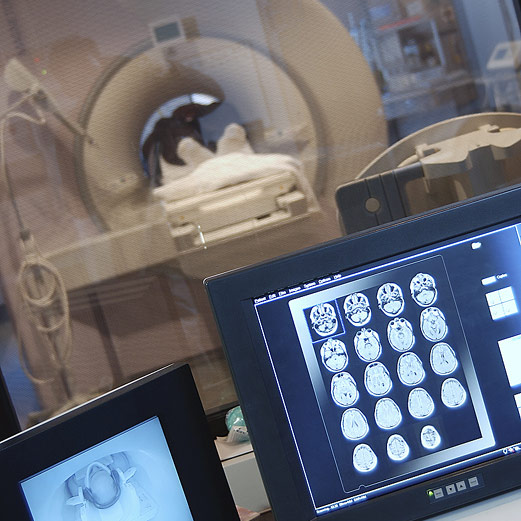
Here are some of the latest health and medical news developments, compiled by the editors of HealthDay:
FBI Investigating ‘Unabomber’ Kaczynski for 1980s Tylenol Deaths
Theodore Kaczynski, the so-called “Unabomber” in prison for life for three killings, said that the Federal Bureau of Investigation is seeking to procure his DNA to see if he was also behind the rash of tainted-Tylenol killings in 1982, Bloomberg News reported.
Those killings, still unsolved, had Americans on edge as seven people in the Chicago area died and 31 million bottles of the nonprescription painkiller were taken off pharmacy shelves.
Kaczynski’s disclosure comes in an effort to block an auction of his belongings, currently ongoing, Bloomberg reported. In one handwritten court document, the 68-year-old former mathematics professor said that the FBI “wanted a sample of my DNA to compare with the partial DNA profiles connected with a 1982 event in which someone put potassium cyanide in Tylenol.” According to Kaczynski, “I have never even possessed any potassium cyanide.”
FBI spokeswoman Kathy Wright declined to comment, Bloomberg said.
—–
Most U.S. Women Have Complications During Pregnancy: Report
More than 9 out of every 10 American women who give birth experience some form of complication, according to a study conducted in 2008 by the Agency for Healthcare Research and Quality (AHRQ).
Overall, 94 percent of women hospitalized for their pregnancy/delivery experienced a complication such as abnormal fetal heart rate, advanced maternal age (over 35 years), anemia, bleeding, diabetes, eclampsia (sudden rise in maternal blood pressure), hypertension, laceration during delivery of the area between vagina and anus, premature labor, urinary infection or vomiting.
Complications seem tied to longer hospital stay: an average of 2.9 days for pregnancies with complications vs. 1.9 days for those without, the AHRQ said in their News and Numbers.
Costs also rose, from an average of $2,600 for pregnancies without complications to $4,100 when health issues arose. Overall, pregnancy/delivery-linked complications totaled $17.4 billion in hospital costs in 2008, the report found.
—–
Painkiller-linked Suicide Tries Among Older Women on Rise
The rate of emergency department visits for drug-linked suicide attempts by American women aged 50 or older jumped by 49 percent between 2005 and 2009, a new government report finds.
Much of the increase involved cases in which women were using prescription medications to treat pain, insomnia or anxiety, according to researchers at the Substance Abuse and Mental Health Services Administration (SAMHSA).
For example, rates of suicide-linked emergency department visits for women 50 or older who used anxiety/insomnia medications rose by 56 percent during the study period, from more than 32,000 cases to more than 50,500 cases, SAMHSA reported.
Rates of attempted suicide for older women that involved prescription narcotics used to relieve pain rose even more sharply. For example, emergency department visits tied to hydrocodone (Vicodin) jumped 67 percent, and cases linked to oxycodone (Oxycontin) more than doubled, the study found.
“The steep rise in abuse of narcotic pain relievers by women is extremely dangerous and we are now seeing the result of this public health crisis in our emergency rooms,” SAMHSA administrator Pamela S. Hyde said in an agency news release.
“Emergency rooms should not be the frontline in our efforts to intervene,” she added. “Friends, family and all members of the community must do everything possible to help identify women who may be in crisis and do everything possible to reach out and get them needed help.”
—–
Stop Sales of Highest Dose of Aricept: Public Citizen
Sales of the highest dose of the Alzheimer’s drug Aricept (donepezil) should be halted because it isn’t effective and can cause serious side effects, according to the U.S. consumer advocacy group Public Citizen and a prominent geriatrician.
In the U.S., a dose of 5 to 10 milligrams of Aricept is approved for patients with mild to moderate Alzheimer’s, while a dose of 10 or 23 mg is approved for patients with moderate to severe Alzheimer’s. The 23-mg dose should be pulled from the market, Public Citizen demands In a petition filed Wednesday with the U.S. Food and Drug Administration.
“Data show that the 23-mg dose of donepezil is significantly more toxic than the 10-mg dose. Combined with its lack of improved clinical benefits, this leads to only one conclusion: that the 23-mg dose should be immediately withdrawn from the market,” Dr. Sidney Wolfe, director of Public Citizen’s Health Research Group, said in a news release.
That position is supported by Dr. Thomas Finucane, professor of medicine in the Division of Gerontology and Geriatric Medicine at the Johns Hopkins University School of Medicine and staff physician at the Johns Hopkins Bayview Medical Center.
“The clearly increased risk of harm from Aricept 23-mg compared to Aricept 10-mg is so great, coupled with the lack of any evidence of improved benefit, that I believe it should not have been approved for sale to the families and caregivers of Alzheimer patients,” Finucane said in the news release.
—–

